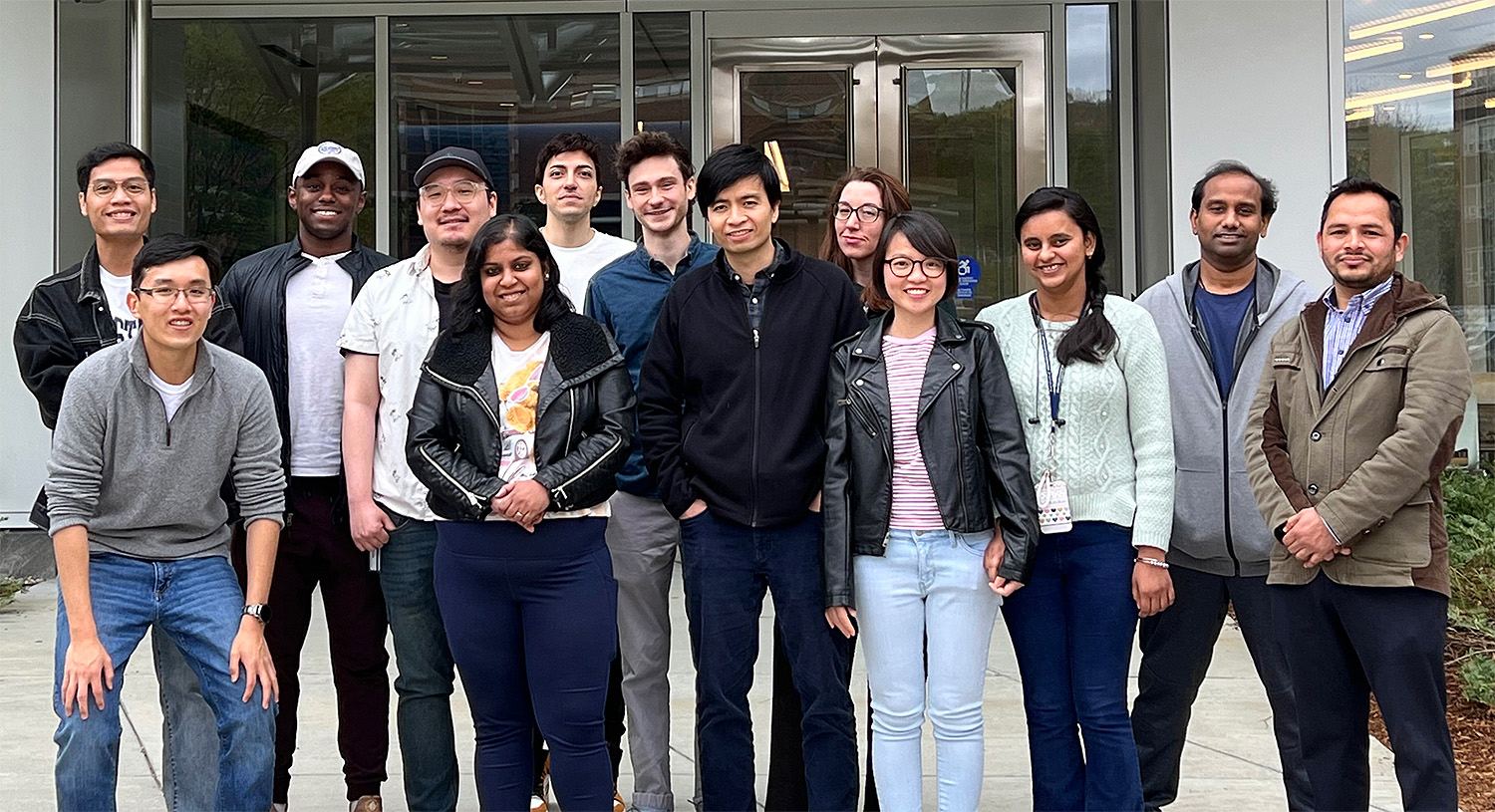
In rural areas, especially in developing countries, the long distance to a medical facility may hinder a population from getting vaccinations, and especially booster doses.
Vaccines—for everything from influenza to COVID-19 to pneumococcal diseases—are stored at a low temperature for stability and are typically administrated through a hypodermic needle and syringe from a health care professional.
“What if we were able to mail people vaccines that don’t need refrigeration and they could apply them to their own skin like a bandage?” asked Thanh Nguyen, associate professor of mechanical engineering and biomedical engineering at the University of Connecticut. “And what if we could easily vaccinate people—once—where they wouldn’t need a booster? We could potentially eradicate polio, measles, rubella, and COVID-19.”
The answer, Nguyen believes, is administrating vaccines through a programmable microneedle array patch with a novel process he is developing at his lab at UConn.
By adhering a nearly painless, 1-centimeter-square biodegradable patch to the skin, a person can receive a preprogrammed delivery of highly-concentrated vaccines in powder form—over months—and eliminate the need for boosters. “The primary argument is that getting vaccines and boosters is a pain,” Nguyen said. “You have to go back two or three times to get these shots. With the microneedle platform, you put it on once, and it’s done. You have your vaccine and you have your boosters. You don’t have to go back to the doctor or hospital.”
This month, UConn’s Institute of Materials Science received a three-year grant from the Bill & Melinda Gates Foundation to support Nguyen’s research on “Single-Administration Self-boosting Microneedle Platform for Vaccines and Therapeutics.” The project’s goal is to develop a low-cost manufacturing process.
The Nguyen Research Group has already been working to thermally-stabilize vaccines and other therapeutics so they can stay inside the skin for a long period. In 2020, Nature Biomedical Engineering published a study by Nguyen and his colleagues reporting that, in rats, microneedles loaded with a clinically available vaccine (Prevnar-13) against a bacterium provided similar immune protection as multiple bolus injections.
“We’ve been able to show this technology is safe and effective in the small animal model, but now the question is, how do we translate it into the commercialized stage and make it useful to the end user, which is the human,” he said.
With support from the Gates Foundation, Nguyen will be able to test his microneedle platform on a larger animal—a pig, which has skin similar to humans. And if the results are similar, Nguyen predicts this technology could be manufactured, at an affordable cost, enabling both domestic and global health impact.
Nguyen’s microneedle platform also caught the attention of the United States Department of Agriculture. In September, the USDA: Research, Education, and Economics division awarded Nguyen with a two-year grant for a study titled “Delivery of FMDV Protein Antigens Using a Programmable Transdermal Microneedle System.”
The Foot-and-Mouth Disease Virus (FMDV) is a highly contagious disease that affects the health of livestock such as cows, pigs, sheep, and goats. When an outbreak occurs, the disease leaves affected animals weakened and unable to produce meat and milk. FMDV causes production losses and hardships for farmers and ranchers, and has serious impacts on livestock trade.
And while vaccines exist, like with humans, boosters are required to keep the vaccine effective.
“USDA is interested in the technology because the patch will be able to deliver the initial dose and subsequent doses, or boosters, to animals without the need for rounding up and handling multiple animals at once,” Nguyen explained. “This decreases stress on the animals and increases safety for the animals and their handlers.”
The microneedle platform is among the latest applications the Nguyen Research Group is exploring in the arena of vaccine/drug delivery, tissue regenerative engineering, “smart” piezoelectric materials, electronic implants, and bioelectronics. Since joining the College of Engineering in 2016, Nguyen has discovered a method of sending electric pulses through a biodegradable polymer to assist with cartilage regeneration; he’s designed a powerful biodegradable ultrasound device that could make brain cancers more treatable; and he used microneedle patches to deliver antibody therapies, which have been proven successful in treating HIV, autoimmune disorders such as multiple sclerosis, and certain types of cancer.
Christina Tamburro, post-award grants and contracts specialist for UConn’s Institute of Materials Science said IMS is grateful to both the Gates Foundation and USDA for supporting Professor Nguyen’s drug delivery research.
“This is a wonderful application of material science and this is what we’re all about. Ultimately, this is going to save lives and it can’t get better than that,” she said.
